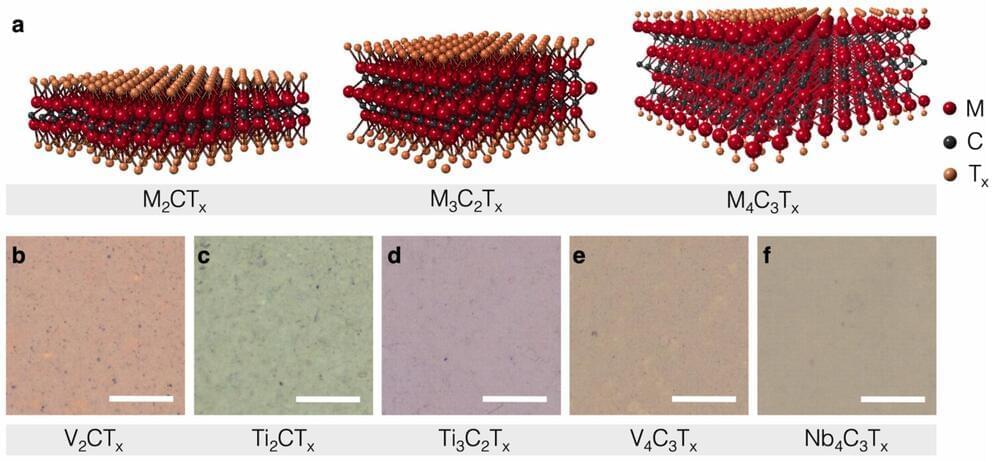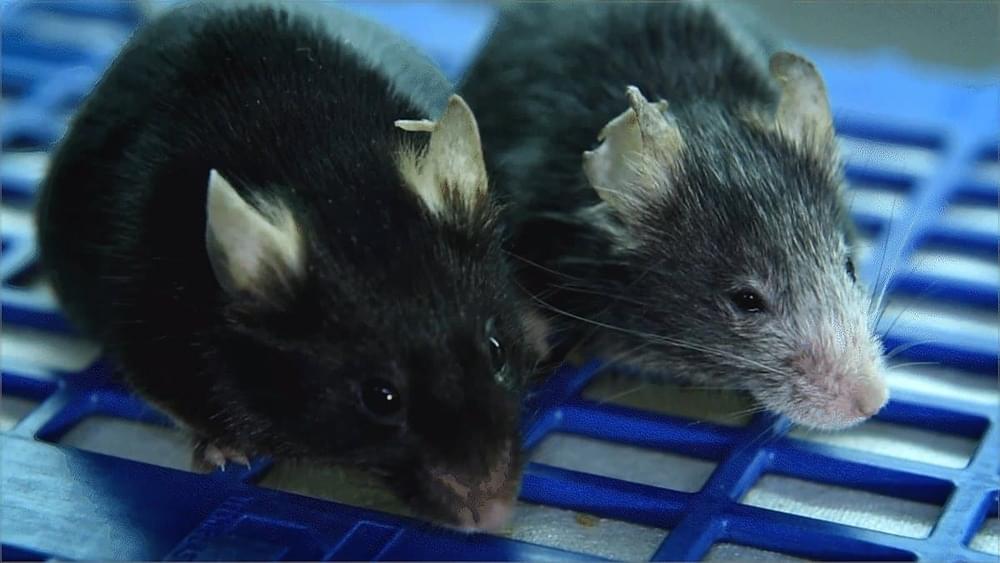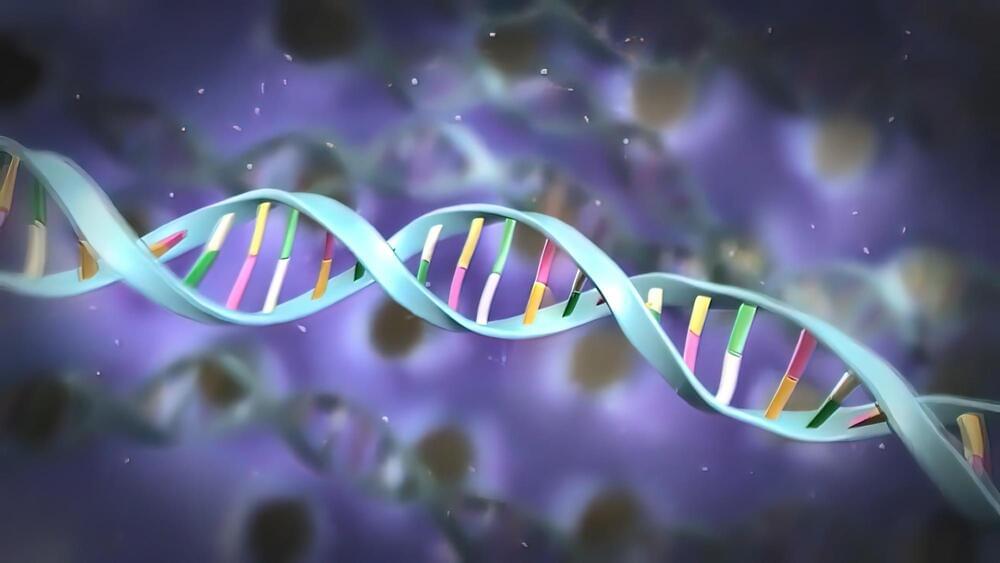Jan 16, 2023
Blocking radio waves and electromagnetic interference with the flip of a switch
Posted by Saúl Morales Rodriguéz in categories: innovation, materials
Researchers in Drexel University’s College of Engineering have developed a thin film device, fabricated by spray coating, that can block electromagnetic radiation with the flip of a switch. The breakthrough, enabled by versatile two-dimensional materials called MXenes, could adjust the performance of electronic devices, strengthen wireless connections and secure mobile communications against intrusion.
The team, led by Yury Gogotsi, Ph.D., Distinguished University and Bach professor in Drexel’s College of Engineering, previously demonstrated that the two-dimensional layered MXene materials, discovered just over a decade ago, when combined with an electrolyte solution, can be turned into a potent active shield against electromagnetic waves.
Continue reading “Blocking radio waves and electromagnetic interference with the flip of a switch” »


















